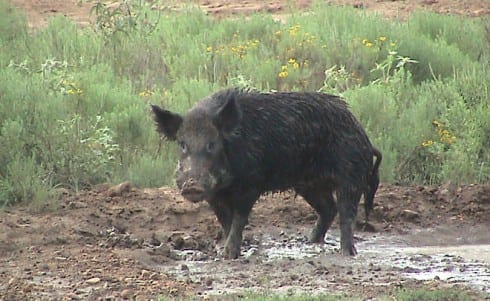In recent years, wild boars are more common in urban areas of Spain. They’re looking for food because the drought has destroyed some of the vegetation that they depend on.
The number of collisions with vehicles has increased, and the destruction of crops in farms.
Perhaps the greatest concern is that wild boars can carry a parasite, which could be transferred to humans.
READ MORE


The parasite is known as Blastocystis. Veterinary Research Says it poses new public-health challenges
Spanish scientists were part of an international research team that carried out the study between 2014 and 2021.
Blastocystis parasites are spread by wild boars, which can be found in Spain and Portugal.
Test results revealed that 15.3% (or 15 wild boars) were infected.
The study included 459 samples of faeces, 360 from Spain and the other 99 from Portugal.
Portugal had a much higher prevalence of infection, with 34.3% infected boars.
Researchers found seven subtypes. Blastocystis as a reflection on genetic diversity
All infected animals had a common subtype ST5, that has adapted to wild boars’ organisms and is commonly found in domestic pork.
The authors of the study have called for more extensive and systematic surveillance programs to be conducted on wild boar populations, as well as livestock living with them.
They want to perform detailed genetic analysis and regular sampling in order to detect potential problems at an early age.
According to the report, detection and monitoring of Blastocystis should be part a comprehensive strategy for health.
This should include the basic principles of a One Health Approach, in which human, animal, and environmental health is interconnected.
 Costa News Spain Breaking News | English News in Spain.
Costa News Spain Breaking News | English News in Spain.







